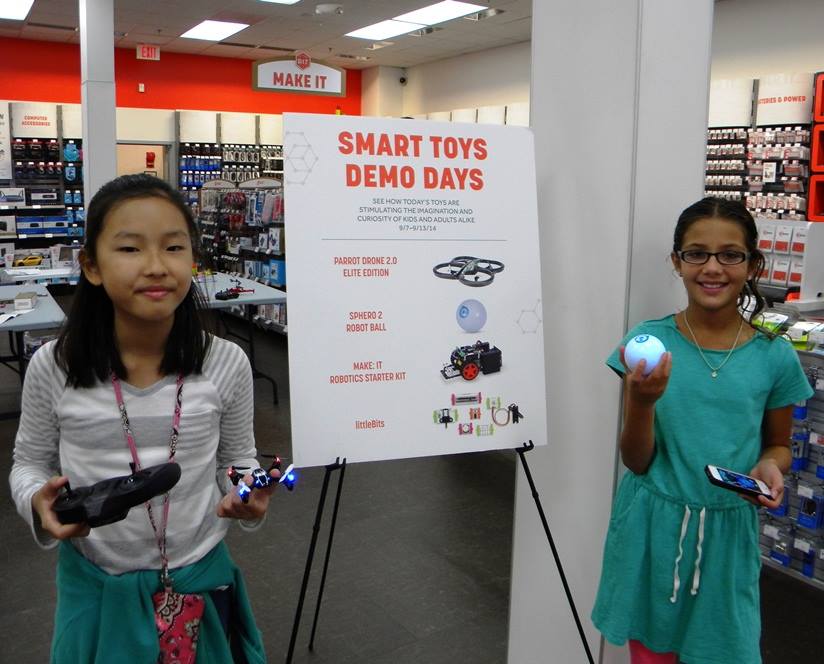SIGCSE is the annual conference for the special interest group of ACM that is focused on computer science education. It is always a great event, and if you have never attended, you should put it on your radar for next year! CSTA Board Members and Chapter members will be a presence at SIGCSE this year in many different ways.
Here’s where you can find us:
CSTA Booths #116 and 118 in the Exhibitor Hall.
Helping to pull the whole awesome affair together are John Dougherty (CSTA-Phila) and Ria Galanos (CSTA-VA).
Wednesday
Teaching to Diversity in Computer Science from 1:00pm – 4:30pm with Helen Hu (CSTA-UT).
CS Teaching Tips Tip-A-Thon from 1:00pm – 4:00pm with Stephanie Hoeppner (CSTA Board Member) and many others.
Thursday
NSF showcase – Process Oriented Guided Inquiry Learning in CS with Clif Kussmaul (CSTA-Phila), Helen Hu (CSTA-UT) and Daniel Libby.
Computer Science Principles Curricula: On-the-ground, Adoptable, Adaptable, Approaches to Teaching from 1:45pm – 3:00pm with Owen Astrachan (CSTA-Triangle East), Jeff Gray (CSTA-AL) and others.
Supporting the Computer Science Learning Process from 3:45pm – 5:00pm with Pat Yongpradit (CSTA-MD) and others.
BOF – Computer Science Principles: Expanding the Community from 5:30pm – 6:20pm with Owen Astrachan (CSTA-Triangle East), Fran Trees (CSTA Chapter Liaison), Rich Kick (CSTA-Southern CA) and others.
BOF – What Math is the Right Math for Computing? from 5:30pm – 6:20pm with John Dougherty (CSTA-Phila).
BOF – Teaching Algebra and Computing through Bootstrap and Program by Design from 5:30pm – 6:20pm with Emmanuel Schanzer (CSTA member)
BOF – Teaching Algebra and Computing through Bootstrap and Program by Design from 5:30pm – 6:20pm with Emmanuel Schanzer (CSTA member)
BOF – Process Oriented Guided Inquiry Learning (POGIL) in Computer Science from 5:30pm – 6:20pm with Clif Kussmaul (CSTA-Phila) and Helen Hu (CSTA-UT) and others.
BOF – Partnering to Promote State-by-State Computing Education Reform from 6:30pm – 7:20pm with Barb Ericson (CSTA-GA).
BOF – Addressing Professional Development Needs for K-12 CS – Working with Your Local CSTA Chapter from 6:30pm – 7:20pm with Dave Reed (CSTA Board Chair-Elect) and Fran Trees (CSTA Chapter Liaison).
Friday
Using POGIL Activities to Teach CS Principles to Diverse Students, a Poster by Helen Hu (CSTA-UT)
A Case Study on Adding Computer Science as a Math Graduation Elective: A Report from the Alabama CS/Mathematics Crosswalk Committee, a Poster by Jeff Gray, et al (CSTA-AL)
Research, Resources and Communities: Informal Ed as a Partner in Computer Science Education, a panel with Irene Lee (CSTA Chair Computational Thinking Task Force) from 10:45am – noon
Papers: Focus on K-12 Professional Development with Chinma Uche (CSTA-CT), Terry Harvey and Lori Pollock (CSTA-DE) and Deepa Muralidhar (CSTA-GA) from 1:45pm – 3:00pm
One-Day Activities for K-12 Face-to-Face Outreach (Panel) on Friday from 3:45pm – 5:00pm. Barb Ericson (CSTA-GA) and Jeff Gray (CSTA-AL) are on the panel.
Perspectives on Adopting and Facilitating Guided Inquiry Learning with Helen Hu (CSTA-UT), Clif Kussmaul (CSTA-Phila) and Deepa Muralidhar (CSTA-GA) from 3:45pm – 5:00pm.
Conducting Educational Research in the Computer Science Classroom: Choosing the Appropriate Research Design to Address your Research Questions from 7:00pm – 10:00pm with Aman Yadav (CSTA Board Member)
How to Plan and Run Summer Computing Camps – Logistics #14 from 7:00pm – 10:00pm with Barb Ericson (CSTA-GA)
Small or Liberal Arts Colleges Adapting to CS2013: Making it Work from 7:00pm – 10:00pm with Dave Reed (CSTA Board Chair-Elect)
The Internet, Creativity and Global Impact: Curriculum Modules from 7:00pm – 10:00pm with Andrew Kuemmel (CSTA-WI) and Rich Kick (CSTA-Southern CA)
Infusing Cooperative Learning into Early Computer Science Courses to Support Improved Engagement from 7:00pm – 10:00pm with Jeff Gray (CSTA-AL), Fran Trees (CSTA Chapter Liaison), Owen Astrachan (CSTA-Triangle East)
Saturday
App Inventor Breakfast is co-hosted by Fred Martin (CSTA Board Member)
Scaling High School Computer Science: Exploring Computer Science and Computer Science Principles from 9:00am – 10:15am with Owen Astrachan (CSTA-Triangle East), Jeff Gray (CSTA-AL), and others.
Decoding CS Principles – A Curriculum from Code.org from 3:00pm – 6:00pm with Baker Franke (CSTA-Chicago) and Pat Yongpradit (CSTA-MD)





